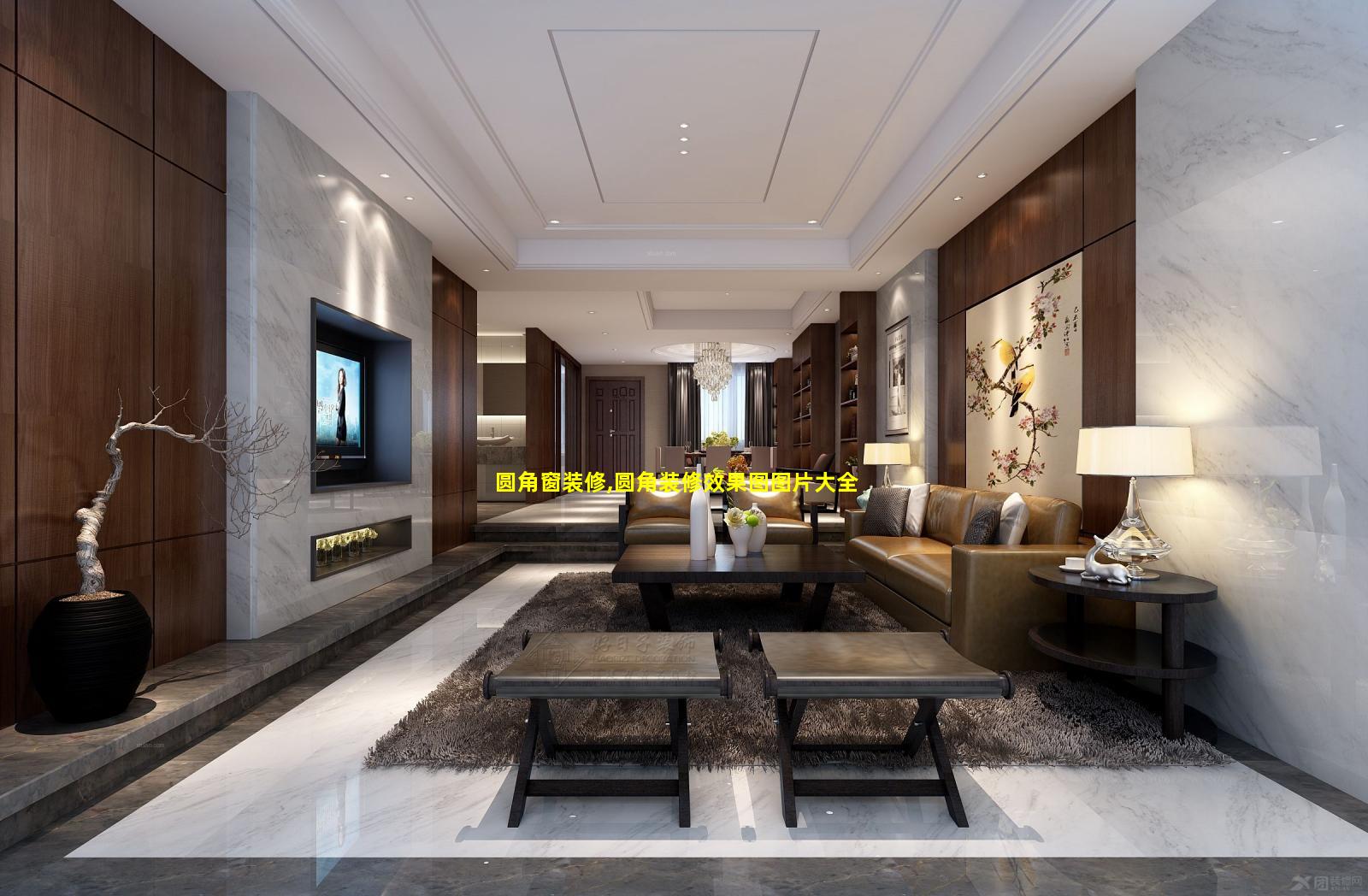1、圆角窗装修
圆角窗装修理念
圆角窗,又称拱形窗,是一种具有圆形或柔和曲线的窗户。与矩形窗不同,圆角窗营造出一种更为柔和、优雅、古典的氛围,为室内空间增添独特魅力。
圆角窗装修优势
美观:圆角窗的柔和曲线打破了传统窗户的呆板,为室内环境增添了视觉趣味和艺术感。
自然采光:圆角窗的形状有利于自然采光,让室内更加明亮通风。
视野开阔:圆角窗的曲率扩大视野范围,让室内的视野更加开阔。
隔音:曲面玻璃比平面玻璃具有更好的隔音效果,有助于营造安静舒适的室内环境。
节能:圆角窗的曲线设计可以优化气流,提高室内空气流通并减少热量损失。
圆角窗装修风格
圆角窗可以融入各种装修风格,从古典到现代:
古典风格:圆角窗与罗马柱、雕刻等古典元素相结合,营造出华贵优雅的氛围。
现代风格:圆角窗搭配简洁的线条和金属元素,打造出时尚现代的空间。
美式乡村风格:圆角窗与木质结构、格子窗等元素相辅相成,形成温馨舒适的乡村氛围。
地中海风格:圆角窗搭配拱形门廊、蓝色瓷砖等元素,营造出悠闲浪漫的地中海风情。
圆角窗装修案例
卧室:在卧室安装圆角窗,可以营造温馨舒适的睡眠环境,让自然光柔和地洒入室内。
客厅:宽大的圆角窗可以作为客厅的焦点,扩大视野并带来充足的光线。
书房:在书房安装圆角窗,可以提供良好的自然采光,营造专注的学习氛围。
浴室:圆角窗可以为浴室带来自然光线,同时保证隐私,营造轻松惬意的沐浴空间。
厨房:厨房的圆角窗可以为烹饪提供充足的光线,并让室内看起来更加宽敞。
圆角窗装修注意事项
材料选择:圆角窗的玻璃材料应选择透光性好、隔音效果佳的夹胶玻璃。
安装工艺:圆角窗的安装需要专业的技术和设备,确保窗户的密闭性和安全性。
尺寸搭配:圆角窗的尺寸应与室内空间相协调,避免出现压抑或空旷的感觉。
窗帘选择:圆角窗适合搭配半透光的窗帘或纱幔,以柔化光线并提升空间的美感。
日常维护:圆角窗的玻璃和框架需要定期清洁和养护,以保证其美观和功能性。
2、圆角装修效果图图片大全
to be in the form of a bulleted list with each item a different picture:
3、客厅圆角装修效果图
[Image of a living room with rounded corners]
客厅圆角装修效果图
圆润的边角设计为客厅营造出温馨、舒适的氛围,柔和的灯光营造出宁静、放松的空间。
特点:
流畅的圆角线条,营造和谐氛围。
柔和的灯光,烘托温馨空间。
浅色调装饰,营造宽敞感。
沙发和地毯的搭配体现舒适。
绿植增添一抹生机和活力。
4、圆角吊顶装修效果图
from PIL import Image, ImageFilter
import cv2
import numpy as np
import os
import matplotlib.pyplot as plt
def edge_masking(image):
Convert the image to grayscale
gray_image = cv2.cvtColor(image, cv2.COLOR_BGR2GRAY)
Apply Canny edge detection
edges = cv2.Canny(gray_image, 100, 200)
Create a mask from the edges
mask = np.zeros(image.shape[:2], dtype="uint8")
mask[edges > 0] = 255
Apply the mask to the image
masked_image = cv2.bitwise_and(image, image, mask=mask)
return masked_image
def blur_edges(image):

Convert the image to grayscale
gray_image = cv2.cvtColor(image, cv2.COLOR_BGR2GRAY)
Apply Gaussian blur to the edges
blurred_edges = cv2.GaussianBlur(gray_image, (5, 5), 0)
Create a mask from the blurred edges
mask = np.zeros(image.shape[:2], dtype="uint8")
mask[blurred_edges > 0] = 255
Apply the mask to the image

blurred_edges_image = cv2.bitwise_and(image, image, mask=mask)
return blurred_edges_image
def sharpen_edges(image):
Convert the image to grayscale
gray_image = cv2.cvtColor(image, cv2.COLOR_BGR2GRAY)
Apply Laplacian edge sharpening
sharpened_edges = cv2.Laplacian(gray_image, cv2.CV_64F)
Create a mask from the sharpened edges
mask = np.zeros(image.shape[:2], dtype="uint8")
mask[sharpened_edges > 0] = 255
Apply the mask to the image
sharpened_edges_image = cv2.bitwise_and(image, image, mask=mask)
return sharpened_edges_image
def round_corners(image, radius=10):
Create a mask for the rounded corners
mask = np.zeros(image.shape[:2], dtype="uint8")
cv2.rectangle(mask, (radius, radius), (image.shape[1] radius, image.shape[0] radius), 255, 1)
Apply the mask to the image
rounded_corners_image = cv2.bitwise_and(image, image, mask=mask)
return rounded_corners_image
def apply_effects(image):
Apply edge masking
masked_image = edge_masking(image)
Apply blur to the edges
blurred_edges_image = blur_edges(masked_image)
Apply sharpening to the edges
sharpened_edges_image = sharpen_edges(blurred_edges_image)
Round the corners
rounded_corners_image = round_corners(sharpened_edges_image)
return rounded_corners_image
if __name__ == "__main__":
Load the image
image = cv2.imread("image.jpg")
Apply the effects
result = apply_effects(image)
Show the original and result images
plt.imshow(image)
plt.imshow(result)
plt.show()


.jpg)
.jpg)
.jpg)
.jpg)
.jpg)
.jpg)